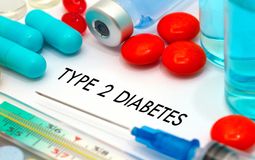
Diabetes 2022

Theme: Diabetes Education and Prevention
Meetings International welcomes you to attend the Webinar on Type-II Diabetes scheduled on February 22, 2022.
Type-II Diabetes Webinar focuses on “Diabetes Education and Prevention.” aims to compile leading academic scientists, research scholars, notable endocrinologists, educationists, professionals and students to witness invaluable scientific discussions and contribute to the future innovations in the field of Diabetes and its management.
This virtual conference will provide the best opportunity for researchers and business leaders to celebrate current achievements and invest in the field of endocrinology for the future.
Session 01: Diabetes and Endocrinology
Diabetes is a condition that happens when our blood glucose levels are abnormally high. Our main source of energy is blood glucose, which comes from the food we eat. Insulin, a hormone produced by the pancreas, aids glucose absorption into our cells for energy usage. Our bodies don't always create enough insulin. Glucose then remains in our bloodstream, unable to reach our cells. Endocrinology is the branch of medicine that deals with our endocrine system, which is responsible for hormone regulation. Endocrinologists are doctors who specialise in diagnosing illnesses of the glands. An endocrinologist is our best bet when it comes to hormone difficulties because these specialists specialise in these situations, which can be complicated and have difficult-to-diagnose symptoms. The purpose of an endocrinologist is to re-establish hormonal balance in our bodies.
Diabetes Analysis Webinars | Health-care Webinars | Endocrinology Webinars | Diabetes and Metabolism Webinars | Diabetes Education Webinars |
Session 02: Diabetes, Sexual & Urologic Problems
Diabetes can affect the nerves in your urinary system, resulting in bladder difficulties. Obesity and being overweight can cause bladder problems such as urinary incontinence (UI). Diabetes management is critical for avoiding problems that can lead to excessive urine. Diabetes can produce retrograde ejaculation, which is caused by a lack of blood sugar management over a lengthy period of time, resulting in bladder neuropathy. Diabetic males may experience retrograde ejaculation as a result of diabetic autonomic neuropathy (nerve damage). Even if you have diabetes, you may be able to overcome ED by following a healthy lifestyle that includes enough sleep, no smoking, and stress reduction. ED drugs are generally well tolerated and can be used for a long time to help with ED issues. Erectile dysfunction is the most common type of sexual problem in men (sometimes known as impotence).
Diabetes Management Webinars | Paediatric Diabetes Webinars | Diabetes Therapeutics Webinars | Obesity and Metabolism Webinars | Diabetes Mellitus Webinars |
Session 03: Diabetes in Women
Women are four times as likely than males to have heart disease (the most frequent diabetic complication), and women have worse results after a heart attack. Additional diabetes-related problems, such as blindness, kidney disease, and depression, are more common in women. When you have diabetes, you may experience a lot of vaginal dryness. High blood sugar levels might cause damage to your vaginal blood vessels. There is a lack of lubrication as a result of this. As a result, sex might be just as painful as before. Type 1 diabetes can strike at any age, but it most commonly strikes during childhood or adolescence. Type 2 diabetes, which is the most common, can develop at any age, though it is more common in persons over 40. Poor diabetes control during pregnancy increases the risk of birth abnormalities and other pregnancy complications.
Diabetes Analysis Webinars | Health-care Webinars | Endocrinology Webinars | Diabetes and Metabolism Webinars | Diabetes Education Webinars |
Session 04: Diabetes and Obesity
Obesity, both central and peripheral, is linked to physiological changes that can lead to diseases like high blood pressure, heart disease, high blood cholesterol, and type 2 diabetes. Diabetes is characterised by the body's inability to regulate and control blood sugar levels. Obesity is a complicated disease associated with a slew of comorbidities, a higher mortality rate, and a lower quality of life. The cumulative medical expenses associated with the treatment of obesity-related disorders, cardiovascular diseases, and diabetes are expected to climb significantly as the adult population becomes more obese.
Diabetes Management Webinars | Paediatric Diabetes Webinars | Diabetes Therapeutics Webinars | Obesity and Metabolism Webinars | Diabetes Mellitus Webinars |
Session 05: Diabetes Ophthalmology
Diabetic ophthalmology is a type of eye illness that affects diabetics. Diabetic eye disease is a collection of vision issues that can affect diabetics. Diabetic retinopathy, diabetic macular edoema, cataracts, and glaucoma are among of the conditions that might affect your vision. Diabetes can harm your eyes over time, resulting in blurred vision or blindness. Taking care of your diabetes, on the other hand, can help you avoid diabetic eye illness or prevent it from worsening.
Diabetes Analysis Webinars | Health-care Webinars | Endocrinology Webinars | Diabetes and Metabolism Webinars | Diabetes Education Webinars |
Session 06: Latent Autoimmune Diabetes of Adults
The prevalence of LADA, defined as a type 2 diabetic phenotype associated with islet antibodies, is roughly 10% among diabetic incident scenario participants aged 40–75 years. Non-insulin-requiring patients with phenotypic type 2 diabetes who are older than 35 years upon diagnosis had a similar prevalence. When LADA patients were matched with people who did not have diabetes, all-cause mortality was reduced by 50%, equivalent to the outcomes reported in the adult-onset autoimmune diabetes group as a whole. We further show that the increased mortality risk affects both men and women, with IHD death being the most common cause of death. The development of autoantibodies against pancreatic cells, insulin, or enzymes involved in pancreatic functions is the cause of LADA. Antibodies that disrupt the pancreas and its function may have an impact on how the body responds to blood sugar.
Diabetes Management Webinars | Paediatric Diabetes Webinars | Diabetes Therapeutics Webinars | Obesity and Metabolism Webinars | Diabetes Mellitus Webinars |
- Diabetes and Endocrinology
- Diabetes, Sexual & Urologic Problems
- Diabetes in Women
- Diabetes and Obesity
- Diabetes Ophthalmology
- Latent Autoimmune Diabetes of Adults
- Endocrinology & Diabetes Research
3 Renowned Speakers
Taherah Mohammadabadi
Agricultural Sciences and Natural Resources University of Khuzestan
Iran
Maha Hamouda
University of Gabes
Tunisia
Akshatha S. J
Mangalore University
India




















































































































